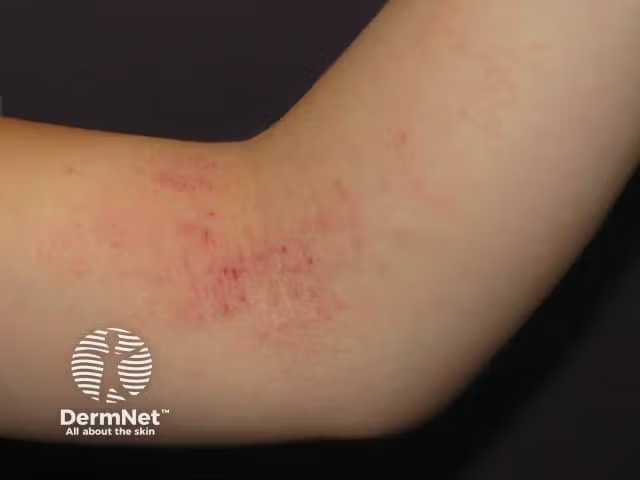- Case-Based Roundtable
- General Dermatology
- Eczema
- Chronic Hand Eczema
- Alopecia
- Aesthetics
- Vitiligo
- COVID-19
- Actinic Keratosis
- Precision Medicine and Biologics
- Rare Disease
- Wound Care
- Rosacea
- Psoriasis
- Psoriatic Arthritis
- Atopic Dermatitis
- Melasma
- NP and PA
- Skin Cancer
- Hidradenitis Suppurativa
- Drug Watch
- Pigmentary Disorders
- Acne
- Pediatric Dermatology
- Practice Management
- Prurigo Nodularis
- Buy-and-Bill
Article
FDA Delays PDUFA Date for Upadacitinib for Atopic Dermatitis
Author(s):
Upadacitinib has shown promising results for a variety of diseases such as severe atopic dermatitis and psoriatic arthritis, but its future remains uncertain.
Biopharmaceutical company AbbVie announced that the FDA did not meet the scheduled PDUFA action date for the supplemental New Drug Application (sNDA) for upadacitinib (RINQOV) as a potential treatment for moderate to severe atopic dermatitis in adult and adolescent patients.
PDUFA action date updates for upadacitinib were previously reported on back in June of 2021. Currently, the FDA has citied its ongoing review of ORAL Surveillance, a post-marketing study by Pfizer evaluating tofacitinib in patients with rheumatoid arthritis.
According to the statement issued by AbbVie, no formal regulatory action has been taken on the sNDAs for upadacitinib in atopic dermatitis, psoriatic arthritis or ankylosing spondylitis.
Previous coverage of upadacitinib highlighted the therapeutic potential of the JAK inhibitor on patients with atopic dermatitis. An interview with Emma Guttman-Yassky, MD, PhD, lead investigator of the Measure Up 1 and Measure Up 2 trials for upadacitinib, suggested a promising future, saying it “enriches our toolbox for atopic dermatitis with an oral systemic.”
The JAK inhibitor was considered well-tolerated among the patient populations in the study, with 60% of all patients who took it achieving notable Eczema Area and Severity Index (EASI) scores.
Additionally, reports of increased efficacy of upadacitinib suggested it was superior to the monoclonal antibody dupilumab in treating patients with atopic dermatitis.
Research reported in December of 2020 showed that 71% of patients achieved EASI scores of 75% as opposed to 61% of patients treated with dupilumab.
Despite this, the FDA has yet to report on an upcoming PDUFA date for upadacitinib. Those involved with the research on the drug remain optimistic.
"We remain confident in the strong efficacy data and in the safety profile for RINVOQ, and we will continue working closely with the FDA to bring the medicine to patients living with the burden of atopic dermatitis and other immune-mediated diseases," Michael Severino, MD, vice chairman and president of AbbVie said in a statement.
This article was originally published by our sister publication HCP Live.






